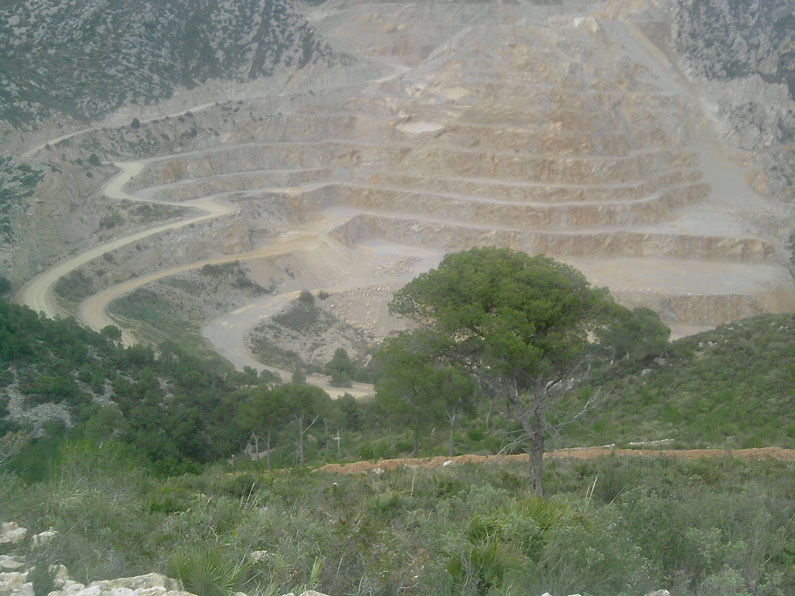
How can we reduce natural resource extraction and consumption?
Considering the excessive and unsustainable use of materials, energy and land, the level of extraction and the level of consumption needs to be capped.
Some of the possible degrowth proposals in this field, developed at the Second International Conference on Degrowth (Barcelona 2010) are illustrated below:
> The exploitation of natural resource is to be limited.
> Reduce the global throughput of energy and materials adjusting it to the carrying capacity of the biosphere.
> Put a limit to human appropriation of net primary production.
Mining
> Public subsidies for extractive industries should be abandoned and the social and environmental cost associated with them paid by companies.
> A global moratorium on resource extraction in areas of high biodiversity and ethnographic value should be established.
> Local communities should participate in decision-making on mining projects.
Waste
Waste should be limited and production, treatment and final disposal of waste should close material cycles and be as local as possible. In these lines, the working group suggested:
> Legal instruments (such as taxation).
> Integrating proximity principles in waste regulation.
> Encouraging reuse through product-service design, cooperative sharing, community-based approaches, deposit and refund systems and facilitation of sharing of good practices.
Water
> Abandon new irrigation plans, large-scale water transfer and supply infrastructure.
> Public ownership and management of superficial, ground and desalted water at municipal level, without considering it a commodity.
> Domestic tariff systems with free access until a basic threshold and a quota up to a ceiling in physical blocks terms per day per person, as well as heavy industrial tariff to physical parameters and thresholds.
> The Virtual water content (full life cycle) should be available to reduce the hidden consumption of water.
Energy
> Total energy consumption and production should reduce while switching to locally produced renewable energy.
> Some energy production has to degrow dramatically (fossil fuels), while others – disappear (nuclear).
> Foster policies, incorporating a multi-criteria evaluation to have an energy system with the highest EROI
and the lowest environmental impact and material throughput with least transport distance.
> The decision making process of planning for future policies should be done in a democratic and decentralized manner ensuring fair access to fossil fuel as their scarcity increases.
The following sample proposals were developed during a workshop on degrowth and natural resources at a pre-conference workshop at the 9th International Conference of the European Society of Ecological Economics:
1. It makes no sense to put quota on only one resource (material/species), but we rather need to take an ecosystem perspective [=have specific caps for different resources and regions coordinated at a global level] addressing one resource creates unbalance. In the case of renewable resources (e.g. fisheries), this ignores the inherently dynamic nature of the resource.
2. Renewable (and non renewable) resources should be protected directly, via protected areas, no-take zones etc, and caps can be a complementary instrument.
3. In the case of bulk material flow analysis, we should account for all resources needed to produce something, thus integrate the concept raw material equivalent (material flow accounting + hidden resources needed to produce it). Cap should be put not only on raw material but on waste too.
4. Some resources can’t have a cap but it is a political choice to have or not like nuclear.
5. A cap can’t be aggregated and general, caps have to capture the dynamic for each resource–territories have different social needs for consumption and environmental problems.

